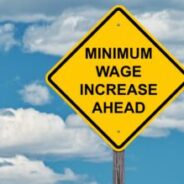Previously published figures in 2017, revealed that only a third of the BBC’s top earners were women, while all seven of the list’s top earners were men, thus causing a storm in the media, politics, recruitment and beyond.
Mind the Gap
Amongst the BBC’s 97 top earners, just one third of the highest paid in the corporation were female. While Chris Evans sat at the top of the tree, taking home a cool £2.2m annually, Claudia Winkleman – the BBC’s highest paid female star – made between £450,000-£500,000 – less than 25% of Evans’ salary.
Other disparities illustrated the scale of the gap even more starkly. While Gary Lineker made £1.75m-£1.79m, much-loved female sports commentator Clare Balding’s pay was just 10% of that figure, standing between £150,000-£200,000.
A number of very high profile women within the BBC failed to make the top earners list altogether. Radio 4 Today programme presenter Sarah Montague was one notable omission, earning around £500,000 less than her co-presenter John Humphrys.
PM Blames the Beeb
Many prominent women in politics spoke out on the issue, including Prime Minister at the time Theresa May who made the following statement in an interview on LBC: “I think what has happened today is we have seen the way the BBC is paying women less for doing the same job as the men. I want to see women paid equally with men”.
But what did all of that mean for the recruitment industry? Did the fresh light on the scandal mean real changes within recruitment and business?
Is Change Coming?
At the time, female employees at the BBC wrote to director general Tony Hall demanding action to close the pay gap. The letter was coordinated by Woman’s Hour presenter Jane Garvey who explained that the signatories were looking for parity, not seeking pay rises: “It’s fairness we are in pursuit of here, not enormous pay rises. We could end up in a situation where everyone takes a pay cut”.
The scandal helped begin a fresh push to close the pay gap by seeing a pattern across the country, with top pay for men falling as women’s salaries rise.
In all likelihood, the BBC earnings list didn’t have so dramatic or immediate effect on recruitment, however it kept the ball moving for steady change and improvements. Previously, the Government implemented new rules forcing companies with over 150 employees to disclose their gender pay gaps by law and with these new rules, we have seen employers starting to gradually chisel away at the gap as female employees feel more empowered to ask for their fair share.
We’d love to get your opinion on the gender pay gap and how you felt scandals, such as those at the BBC brought about change in the recruitment market, so please drop us a line or leave a comment on our social channels. We’d love to hear from you.












